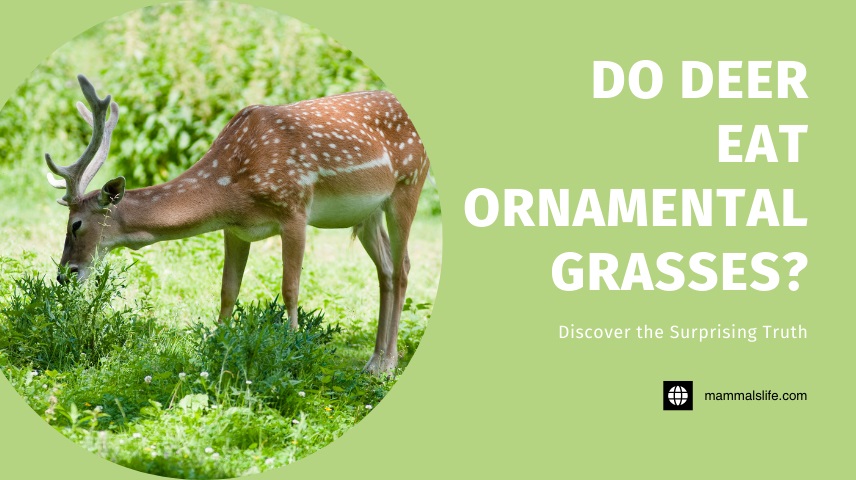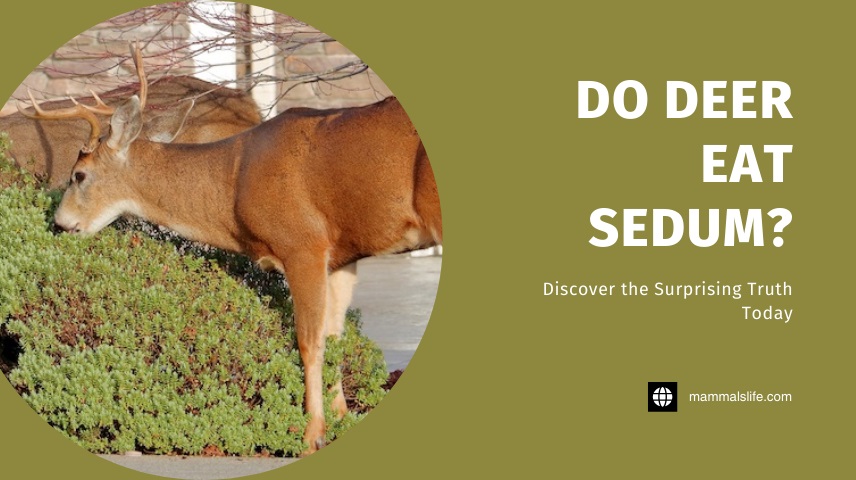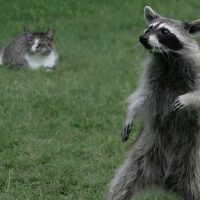Last Updated on February 22, 2025 by Mammals Life
Yes, deer eat ornamental grasses. They find many types of ornamental grasses appealing and often nibble on them.
Ornamental grasses add beauty and texture to gardens. Unfortunately, they can become a tasty snack for deer. Gardeners face challenges keeping their plants safe from these hungry visitors. Deer are known for their appetite and can cause significant damage to landscaping.
Understanding which grasses attract deer can help in selecting the right plants. Some grasses are more resistant to deer than others. By choosing deer-resistant varieties, you can enjoy a beautiful garden with less worry. Planting the right types of grasses keeps your garden vibrant and deer-free. Consider fencing or repellents for extra protection against deer.
Deer’s Diet Basics
Understanding a deer’s diet is important for gardeners. Deer have a varied diet, which includes many plants. They eat different foods during different seasons. Knowing what deer eat can help protect your garden.
Common Foods
Deer eat a variety of plants. Their diet includes:
- Grasses
- Leaves
- Fruits
- Nuts
- Tender shoots
Deer are also known to eat flowers and shrubs. They can consume many types of vegetation. Their diet often depends on what is available.
Seasonal Variations
Deer’s diet changes with the seasons. In spring and summer, they eat:
- Young grasses
- Fresh leaves
- Flowers
During fall, their diet shifts to:
- Acorns
- Nuts
- Berries
In winter, food is scarce. Deer eat:
- Woody plants
- Twigs
- Bark
Ornamental grasses can be part of their diet, especially in winter.
Read More – Do Deer Eat Tomatoes? Signs, Preventing, Deer-resistant Plants
Ornamental Grasses Overview
Ornamental grasses add beauty to gardens. They are versatile and low-maintenance. These grasses are popular for their texture and color. Gardeners love them for their year-round appeal.
Popular Varieties
There are many popular types of ornamental grasses. Here are some of the favorites:
- Feather Reed Grass: Known for its tall, feathery plumes.
- Blue Fescue: Features blue-gray foliage and is very compact.
- Japanese Forest Grass: Has vibrant green and gold leaves.
- Switchgrass: Noted for its airy flower panicles.
Growth Conditions
Ornamental grasses thrive in various conditions. Let’s break it down:
| Growth Factor | Details |
|---|---|
| Soil | Well-drained soil is ideal. Some tolerate clay or sandy soil. |
| Sunlight | Most grasses prefer full sun. Some grow well in partial shade. |
| Water | Regular watering is needed at first. Once established, they are drought-tolerant. |
| Temperature | They can handle various temperatures. Some are more cold-hardy than others. |
Understanding these conditions helps your grasses thrive. Happy gardening!
Read More – Do Deer Eat Tree Bark? Impact On Trees, Preventing Bark Damage
Deer And Ornamental Grasses
Deer are common visitors in many gardens. They often munch on plants. Ornamental grasses can be a part of their diet. Understanding their habits can help protect your garden.
Browsing Behavior
Deer are selective eaters. They prefer tender shoots and fresh leaves. They may nibble on ornamental grasses, but not always. Their browsing behavior changes with seasons and food availability.
- Spring: Deer seek new growth.
- Summer: They look for lush, green plants.
- Fall: Deer eat more to prepare for winter.
- Winter: They consume whatever is available.
Preferences
Deer have preferences for certain plants. Some ornamental grasses are less appealing. They may avoid grasses with strong scents or rough textures. Miscanthus and Fountain Grass are often left untouched.
| Grass Type | Deer Preference |
|---|---|
| Blue Fescue | Low |
| Pampas Grass | Medium |
| Feather Reed Grass | High |
Planting deer-resistant grasses can help. Blue Fescue is a good choice. It has a low deer preference. Feather Reed Grass is more likely to be eaten. Knowing their preferences can guide your planting.
Read More – Do Deer Eat Meat? Nutritional Needs, Impact On Health
Protecting Your Garden
Deer can be a significant threat to your garden. They often munch on ornamental grasses. Protecting your garden is essential to ensure your plants thrive. Here are some effective ways to safeguard your precious greenery.
Fencing Options
Fences are a reliable way to keep deer out. They serve as a physical barrier, making it hard for deer to enter your garden.
- Electric Fencing: Delivers a mild shock to deter deer.
- Wooden Fencing: Tall and sturdy, deer find it hard to jump over.
- Mesh Fencing: Economical and easy to install, but may need regular maintenance.
Ensure your fence is at least 8 feet high. Deer are excellent jumpers.
Natural Repellents
Natural repellents can keep deer at bay without harming them. These options are often safe for pets and children.
- Strong Scents: Deer dislike strong smells. Use garlic, soap, or human hair.
- Predator Urine: This mimics the presence of predators. Fox or coyote urine works well.
- Homemade Sprays: Mix eggs, water, and hot sauce. Spray on plants.
Reapply repellents after rain. They can wash away easily.
Deer-resistant Plants
Planting deer-resistant species can reduce damage. Deer avoid certain plants due to their taste or texture.
| Plant | Characteristics |
|---|---|
| Lavender | Strong scent, deer dislike |
| Yarrow | Bitter taste, deer avoid |
| Boxwood | Thick foliage, hard for deer to eat |
Combining these methods can offer robust protection. Keep experimenting to find what works best for your garden.
Alternative Plants
If deer are munching on your ornamental grasses, consider planting alternatives. Some plants are less tasty to deer. These plants can beautify your garden while keeping deer at bay.
Deer-resistant Choices
Here are some deer-resistant plants that can replace ornamental grasses:
- Lavender: This plant has a strong smell that deer dislike.
- Yarrow: Its bitter taste keeps deer away.
- Russian Sage: The tough leaves are not appealing to deer.
- Catmint: Deer find its aroma unpleasant.
- Boxwood: Its dense foliage is not favored by deer.
Companion Planting
Use companion planting to protect your garden:
- Plant strong-smelling herbs like rosemary around your garden.
- Use thorny plants like barberry as a barrier.
- Mix flowering plants with a strong scent, such as marigolds.
- Include tall plants to create a physical barrier.
These strategies can help keep your garden safe from deer.
Frequently Asked Questions
Do Deer Eat Ornamental Grasses?
Yes, deer often eat ornamental grasses, especially during fall and winter when food is scarce.
Which Ornamental Grasses Do Deer Avoid?
Deer typically avoid grasses with strong scents or tough textures, such as Miscanthus and Blue Fescue.
How To Protect Ornamental Grasses From Deer?
Use deer repellents, fencing, or plant deer-resistant grasses to protect your ornamental grasses from deer.
Are There Deer-resistant Ornamental Grasses?
Yes, grasses like Fountain Grass, Blue Oat Grass, and Switchgrass are generally deer-resistant.
Do Deer Eat All Types Of Grasses?
No, deer are selective and prefer tender, young shoots over tough, mature grasses.
What Time Of Year Do Deer Eat Grasses?
Deer mostly eat grasses in late fall and winter when other food sources are limited.
Conclusion
Ornamental grasses can be a tempting snack for deer. Choosing deer-resistant varieties helps protect your garden. Implementing protective measures also deters these animals. By combining the right plants and strategies, your ornamental grasses can thrive. Enjoy a beautiful, deer-free garden with thoughtful planning and vigilance.











